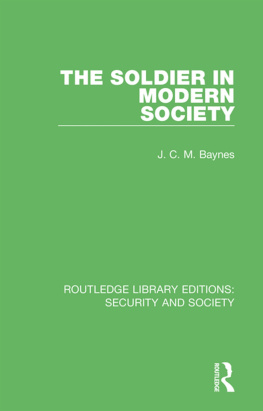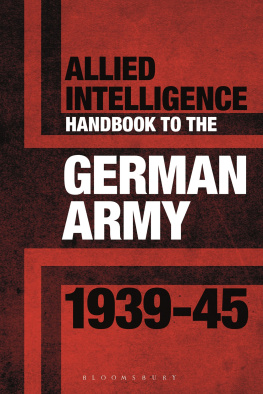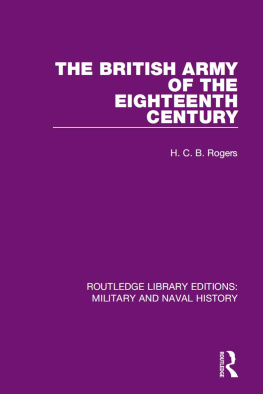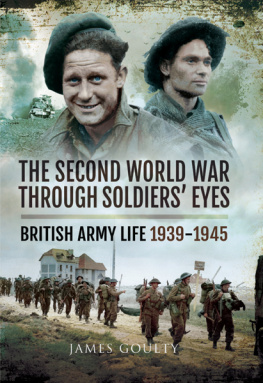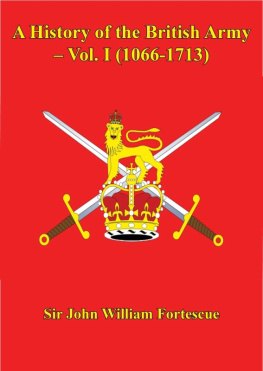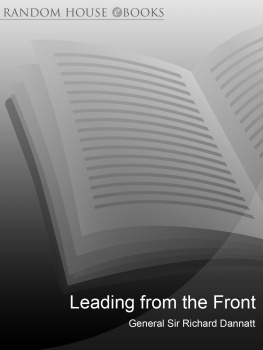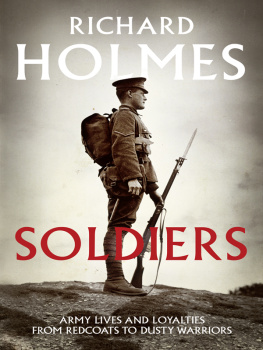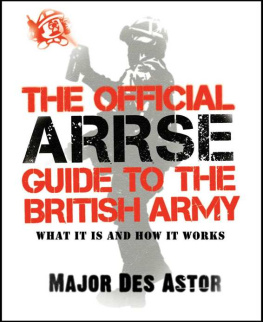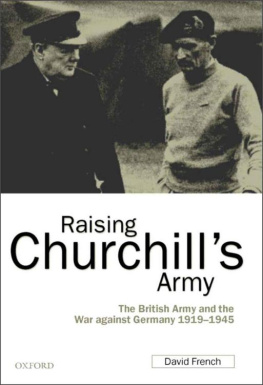ROUTLEDGE LIBRARY EDITIONS: SECURITY AND SOCIETY
Volume 2
THE SOLDIER IN MODERN SOCIETY
THE SOLDIER IN MODERN SOCIETY
J. C. M. BAYNES
First published in 1972 by Eyre Methuen Ltd
This edition first published in 2021
by Routledge
2 Park Square, Milton Park, Abingdon, Oxon OX14 4RN
and by Routledge
52 Vanderbilt Avenue, New York, NY 10017
Routledge is an imprint of the Taylor & Francis Group, an informa business
1972 J. C. M. Baynes
All rights reserved. No part of this book may be reprinted or reproduced or utilised in any form or by any electronic, mechanical, or other means, now known or hereafter invented, including photocopying and recording, or in any information storage or retrieval system, without permission in writing from the publishers.
Trademark notice: Product or corporate names may be trademarks or registered trademarks, and are used only for identification and explanation without intent to infringe.
British Library Cataloguing in Publication Data
A catalogue record for this book is available from the British Library
ISBN: 978-0-367-56733-0 (Set)
ISBN: 978-1-00-312078-0 (Set) (ebk)
ISBN: 978-0-367-61196-5 (Volume 2) (hbk)
ISBN: 978-1-00-310462-9 (Volume 2) (ebk)
Publishers Note
The publisher has gone to great lengths to ensure the quality of this reprint but points out that some imperfections in the original copies may be apparent.
Disclaimer
The publisher has made every effort to trace copyright holders and would welcome correspondence from those they have been unable to trace.
The Soldier in Modern Society
Lieutenant-Colonel J. C. M. Baynes (M.Sc.)
First published 1972
by Eyre Methuen Ltd
11 New Fetter Lane, EC4P 4EE
1972 J. C. M. Baynes
Printed in Great Britain
by W & J Mackay Ltd, Chatham
sbn 413 27440 3
Contents
Figures
All views expressed in this book reflect
the views of the author himself, and are
not necessarily those of Her Majestys
Government, nor of the Ministry of Defence.
This book was written during the academic year 1968-1969, which I had the good fortune to spend at Edinburgh University on a Defence Fellowship. The idea of letting officers spend sabbatical years at University was first discussed among the three service Ministries, as they were at the time, in the late 1950s. The scheme smouldered quietly for some years, and was then fanned into flame by Mr Denis Healey on his arrival at the now unified Ministry of Defence in 1964. The first Fellowships were awarded in 1967. Great care was taken in designing the scheme to ensure that there should be no question of forcing officers onto unwilling universities: the onus was placed firmly on each applicant to gain acceptance for himself and his subject for research from his chosen university before sending forward the necessary forms to the Ministry of Defence.
My own choice of Edinburgh was not difficult to make. Brief contact with John Erickson, then Reader in, and now Professor of, Defence Studies, showed me that here was the right place to be. First impressions were reinforced by meeting Harry Hanham, then Professor of Politics, who fortunately took me under his wing as well. Harrys successor, James Cornford, has in his turn given me every encouragement, and I have never had the slightest cause to doubt the wisdom of my choice of university.
I have received much help during the time that this book has been in the course of preparation. As does everyone who writes about the British Army, I must start by referring to the ever-helpful Mr D. W. King, O.B.E., the Ministry of Defence Librarian, and to his staff, for their knowledge and readiness to assist.
Group Captain Roy Morriss contribution to is acknowledged in the text, and in the source notes. He virtually wrote the chapter for me, and so made it a thoroughly authoritative document.
Mr D. W. Ward was Head of DS15 while I was working on the book, and I am extremely grateful to him for his encouragement, and the speed with which he got the manuscript read and passed in the Ministry of Defence. Mr Russell Potts, who was Report Secretary from 1967-70 to the N.B.P.I. Standing Reference on the Pay of the Armed Forces gave me much advice and encouragement.
Miss J. M. Waterhouse, Chief Superintendent of Typists, was a tower of strength while the book was being typed, ably assisted by Miss E. M. Williamson. I am grateful to them for their help, and to all the typists under their control who produced things for me so quickly and neatly. Also Mrs Campbell and Miss McAlister of my own headquarters in Glasgow, who have done useful work for me in this line.
Other friends and helpers have been so many that I cannot list them all. But this does not mean I am not grateful to them.
Finally, I believe that enabling service officers to work with people in universities has been an important new development. The concept of Defence Fellowship is one which deserves encouragement and support, and it is hoped that this book will reflect something of the value that one Fellow at least feels he has obtained from a spell in a university environment.
The Soldier in Modern Society
Since this book has been written in academic surroundings and, it is hoped, will be read by members of the academic profession, it had better be admitted that in such circles its subject matter is looked on with some scepticism. In certain university circles at least one cannot avoid the impression that Defence Studies is regarded in a similar way to an elderly tart: not only rather disreputable, but a bit of a joke as well. For this reason one must come out fighting in the first round and try to show how mistaken such a view is.

To find a simple definition of Defence Studies is not easy: it is a subject which cuts across many other existing disciplines: for example, history, politics, philosophy, economics, psychology, and geography are all to some extent touched by it. However, a suitable working definition of the subject might be to say that it has four main aims. The first is to think about problems connected with war, conflict, and international politics in the strategic context. In this respect the work done at a university should widen the viewpoint on the subject beyond that normally found among service officers and civil servants. The second aim is to offer comment on the composition of the services themselves, on their place in society, and on their general function in national life. Third, Defence Studies exist to encourage an interest in the subject among as wide a range of people as possible, and to bring together all those who are concerned in its many aspects. Finally, there is the important task of teaching students, both undergraduates and postgraduates, and encouraging in them a desire to obtain really full knowledge of a subject which is all too often given over to the amateur strategist.

